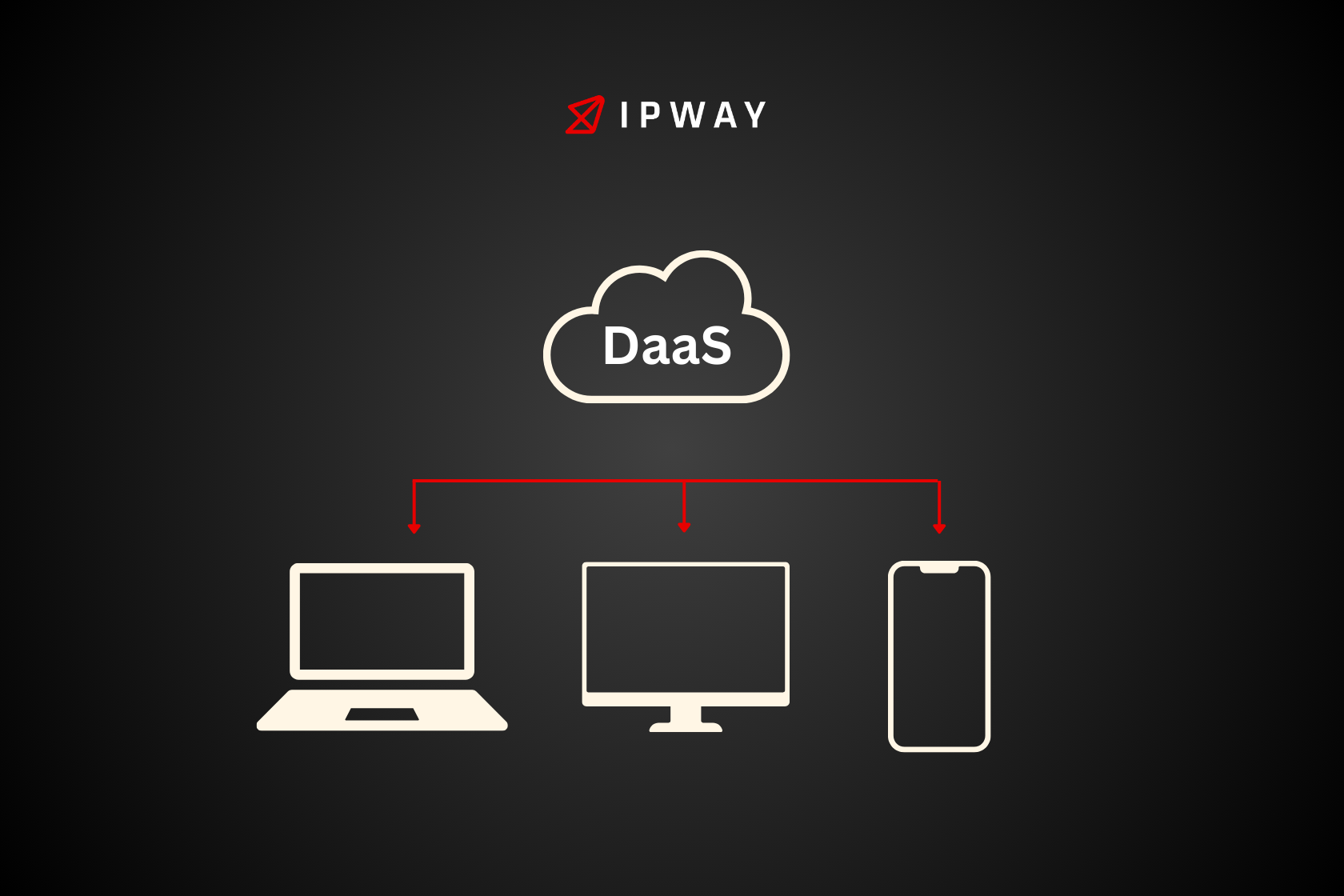In the era where data plays a crucial role, businesses are always looking for effective methods to handle, scrutinize and make the most of data. A rising approach in this regard is Data as a Service (DaaS). So, what is Data as a Service?
DaaS stands as a system that offers data to users without being limited by the physical or organizational boundaries, between the data provider and user. By utilizing cloud technology DaaS enables companies to retrieve, manage and apply data without having to construct and sustain data infrastructures.
What is Data as a Service and how does it work?
Data as a Service functions by using cloud technology to provide users with data through the internet. The usual procedure includes obtaining data preparing it and then delivering it. Data can be sourced from places such as public databases, web scraping and collaborations, with other entities. Subsequently this data is refined organized. Kept in cloud based storage systems.
When a company signs up with a DaaS provider it gets access to this database. Can fetch data using APIs or other online interfaces. The subscription plan lets companies pay for the data they actually use which makes DaaS a choice, for lots of businesses.
Benefits of Data as a Service
Cost Efficiency
One major advantage of DaaS is its cost effectiveness. When companies delegate data management to a DaaS service provider they can lower their reliance on data systems and staff. This helps in saving money and changes the responsibility, from upfront investment to ongoing operational costs.
Scalability
DaaS provides scalability allowing businesses to adjust their data usage as needed without concerns about the infrastructure. This adaptability is especially advantageous, for companies facing expansion or fluctuating data needs based on seasons.
Accessibility and Integration
Data as a Service guarantees that data can be accessed from any location with an internet connection. This accessibility is vital for companies, with teams spread out or working remotely. Additionally DaaS offerings typically include APIs that make it simple to integrate with current systems and applications.
Enhanced Data Quality
Data as a Service (DaaS) companies often put a lot of effort into managing data quality to guarantee accuracy, timeliness and relevance. This emphasis, on quality can greatly improve the trustworthiness of the business insights obtained from the data.

Data as a Service Use Cases
Market Research
Businesses have the option to utilize Data as a Service (DaaS) to gain access to datasets that offer valuable information, on market trends, customer actions and competitor analysis. This information can assist in making strategic choices and discovering fresh market prospects.
Customer Relationship Management (CRM)
DaaS has the potential to boost CRM systems by offering data that gives a deeper understanding of customer preferences and behaviors. This enriched data can enhance customer segmentation targeting and efforts, towards personalization.
Machine Learning and AI
Data as a Service (DaaS) plays a role in supporting machine learning and AI endeavors by offering ample high quality data, for training models eliminating the need to handle cumbersome data storage tasks.
Financial Analysis
Financial companies can use Data as a Service (DaaS) to evaluate risks identify fraud and analyze investments. Having real time access, to information allows for faster and more precise decision making.
What is the Difference Between SaaS and DaaS?
Both Software as a Service (SaaS) and Data as a Service (DaaS) make use of cloud technology to provide their services. They have unique roles and cater to specific requirements, within a company.
Purpose and Functionality
SaaS: Software as a Service also known as SaaS offers users the convenience of accessing software applications through the internet. These applications are. Hosted by the service provider eliminating the need for users to install them on their personal computers.
SaaS covers an array of applications, such as customer relationship management (CRM) systems, enterprise resource planning (ERP) software and productivity tools, like word processors and email platforms. The main goal of SaaS is to provide functionality and an intuitive user interface that allows users to perform tasks or operations using the software.
DaaS: Data as a Service on the side is all about providing users with data whenever they need it. Than offering a software program DaaS gives users access to data that they can use in their own systems and apps. The data is usually gathered, cleaned and managed by the DaaS provider to ensure its accuracy, currency and suitability for analysis or integration.
DaaS places a focus on delivering data effectively maintaining quality standards and enabling seamless integration. Qualities that are crucial for businesses heavily reliant on data, for decision making, analytics and developing machine learning models.
Delivery and Integration
SaaS: In the Software as a Service (SaaS) model the provider handles everything related to the software, such, as hosting, upkeep, security and enhancements. Users can use the software via a web browser or a specific app through a subscription. This approach removes the necessity for companies to handle the infrastructure details resulting in cost reductions and streamlined IT administration. SaaS programs are usually created to be easy for users to navigate and don’t require technical knowledge to use.
DaaS: However Data as a Service (DaaS) provides data via cloud based platforms and APIs enabling users to access, search and merge data into their applications or systems. Integrating this data can pose challenges that’re more intricate than with Software as a Service (SaaS) as it often involves ensuring that the DaaS providers data formats align, with the users current infrastructure. While DaaS providers offer tools and APIs to aid in this process users may still need to engage in customized development efforts to seamlessly integrate the data into their processes.
Use Cases
SaaS: SaaS is widely used across various industries and functions due to its versatility and ease of use. Common use cases include:
- Managing customer relationships is crucial for businesses and tools such as Salesforce are valuable, for handling customer interactions and fostering relationships.
- Enterprise Resource Planning (ERP) systems such, as SAP and Oracle ERP help businesses optimize their operations by integrating and automating processes across departments.
- Tools such as Microsoft Office 365 and Google Workspace play a role, in boosting teamwork and efficiency within organizations.
DaaS: DaaS is especially useful for companies that require access to amounts of data or specific datasets, for analysis and decision making. Typical use cases include:
- Businesses have the ability to utilize sets of data to gain insights, into market trends and consumer habits.
- Financial institutions utilize Data as a Service (DaaS) to access up, to the minute market data and analytics for making choices regarding investments.
- Data scientists and AI developers use Data as a Service (DaaS) to access top notch data for training and improving machine learning models.
Cost and Flexibility
SaaS: Software as a Service (SaaS) options typically function through a subscription system, wherein customers pay a fee to use the software. This approach provides businesses with cost predictability and the flexibility to adjust their usage as necessary. The provider takes care of all maintenance and updates easing the workload, on the users IT team.
DaaS: DaaS usually operates on a subscription or pay as you go basis, where users are charged based on the amount of data they utilize. This adaptable approach enables companies to adjust their data usage in line with demand steering clear of the expenses linked to managing, on site data storage solutions. Nonetheless businesses must factor in expenses tied to integrating and customizing data.
Security and Compliance
SaaS: The SaaS provider is, in charge of handling security and compliance making sure that the software follows industry norms and rules. This offers users reassurance as the provider oversees data protection and compliance with laws.
DaaS: When it comes to DaaS providers they make sure to focus on security and compliance. However companies need to be certain that the data they use meets their regulatory needs. This might require taking measures to protect data while its being transmitted and stored as well as controlling access, within their own systems.
The Advantages of Integrating DaaS Into Business Operations
One: Less Overhead
Incorporating Data as a Service (DaaS) into business activities minimizes the necessity for on site data systems. This decrease in infrastructure results in reduced upkeep expenses and decreased resource demands, for data management.
Two: Increased Volume Flexibility
Businesses can tailor their data usage with DaaS to meet their requirements. This adaptability guarantees that they only incur charges for the data they utilize preventing expenses from, over provisioning or underusing data resources.
Three: System Integration and Expansion
DaaS solutions are created to smoothly blend with the systems in place. This seamless integration makes it easier to enhance data capabilities without causing disruptions, to ongoing operations. Companies can swiftly incorporate data sources and analytical tools thereby improving their overall data approach.
Data as a Service Integration Challenges
Data Security and Compliance
Integrating Data as a Service (DaaS) poses a hurdle in maintaining data security and complying with regulations like GDPR, CCPA and HIPAA. Companies need to collaborate with DaaS providers to establish strong security protocols and guarantee that data is managed in compliance, with the law.
Technical Integration
Incorporating DaaS, into systems may pose technical hurdles. Aligning data formats, APIs and data structures with the companys existing setup is crucial. This typically entails preparation and possibly tailored development efforts to guarantee seamless integration.
Data Quality Management
Ensuring top notch data quality is crucial, for integrating DaaS. Companies need to set up explicit data management rules and collaborate with DaaS vendors to guarantee the precision, uniformity and timeliness of data.
Conclusion
So, what is Data as a Service? It is a step forward in how companies handle and leverage data. DaaS allows businesses to access top notch data whenever they need it helping them make decisions without the hassle of maintaining complex data systems.
Although there are hurdles when it comes to incorporating DaaS the advantages in terms of saving costs, scalability and improved data quality make it an attractive choice, for companies. With the changing data landscape DaaS is set to become even more crucial for the success of data driven businesses.
Discover how IPWAY’s innovative solutions can revolutionize your scraping experience for a better and more efficient approach.
